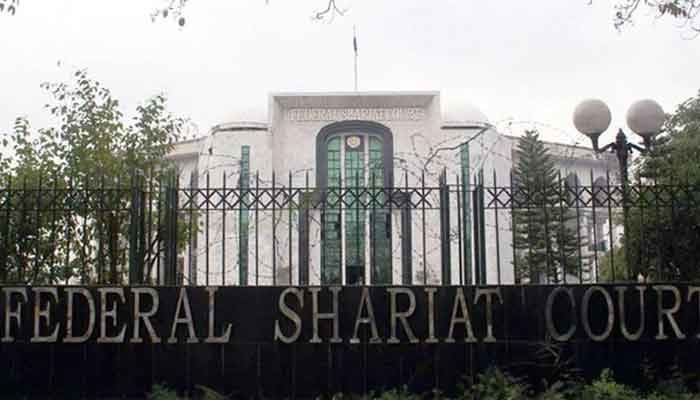- A person’s gender cannot be determined by their feelings, says court.
- Says no one can be declared transgender based on physical features.
- Court says responsibility of govt to ensure rights of transgender persons.
ISLAMABAD: The Federal Shariat Court (FSC) on Friday ruled that it was not for the transgenders to decide their identity as male or female, and they were not allowed to change their gender based only on their self-proclaimed feelings and desires.
The order was announced by the Acting Chief Justice of the Federal Shariat Court Dr Syed Muhammad Anwer and Justice Khadim Hussain Shaikh on a petition challenging the Transgender Act.
The court made it clear in its order that gender was related to a person’s biological sex, and that it has a specific bearing on how various forms of worship, including daily prayers, fasting, Hajj, etc are performed in Islam.
“A person’s gender cannot be determined by their feelings,” said the ruling and added: “Shariah does not permit anyone to have their gender reassigned because of impotence as the gender remains the same as it was at birth”.
“No one can be declared transgender based on physical features and self-made identity,” said the verdict and added that the gender of an individual would be determined by their dominant physical features or secondary sex characters.
The court stated that those exhibiting dominant male features would be considered male transgenders and those having dominant female secondary sex characters would be deemed female transgenders.
The court, however, ruled that it was the responsibility of the government to ensure the rights of transgender persons as “Islam provides them will all human rights”.
“If a man or a woman calls themselves transgender outside of their biological sex then it is against Shariah,” said the verdict.
The verdict stated that Section 7 and Section 3 of the Transgender Protection Act were against Islam and Shariah. The court also struck down Section 2F of the Transgender Act.
The court also declared that the rules made under the Transgender Protection Act as “illegal”.
The act
The Transgender Persons (Protection of Rights) Act was passed by Pakistan’s Parliament in 2018. The law prohibits discrimination against transgender people in schools, workplaces and public spaces, as well as ensures their right to vote, inherit property and run for public office.
In 2022, politicians from religious political parties, including the Jamat-e-Islami and Jamiat Ulema-e-Islam Pakistan-Fazl, kicked up a row, insisting that the law is against Islamic tenets and should be immediately amended.
Social media users and conservative politicians accuse the law of permitting gender-reassignment surgeries, same-sex marriages, and cross-dressing. They also claim that since 2018, when the law was passed, over 23,000 people have changed their genders.
The claim that the law will allow men to change their gender to female and women to male on official documents is incorrect.
The law clearly defines a “transgender person” as one who is “intersex” with a mixture of male and female genital features or a eunuch assigned the male gender at birth but undergoes castration or a trans person whose gender identity differs from the sex they were assigned at birth.
The Rules of the Act further clarify that a transgender person will have to approach the National Database and Registration Authority (NADRA) for a change of name or gender on identity documents, as per their self-perceived identity. And NADRA will only alter their gender from Female to the category “X” or Male to the category “X”.
“X” symbolises the third sex in Pakistan, a classification specially created for the trans community on the orders of the Supreme Court in 2009.
The law or the rules do not allow men to change their gender to female or vice versa on their CNICs, passports or other travel documents.
Apart from this, the law also allows transgender persons to register to obtain a driver’s licence and passport; prohibits harassment of transgender persons at home and in public places; stops people from discriminating against transgenders in educational institutions and workplaces, in trade and health services, when using public transport, and when buying, selling, or renting property.
The law also calls for the establishment of safe houses for transgender persons and the provision of medical and educational facilities and psychological counselling to them.
Moreover, it makes it mandatory for the government to set up separate rooms at jails for transgenders and according to the law, they are also entitled to inherit property among other things.


 Business2 days ago
Business2 days ago
 Business2 days ago
Business2 days ago
 Business2 days ago
Business2 days ago
 Latest News2 days ago
Latest News2 days ago
 Latest News2 days ago
Latest News2 days ago
 Business2 days ago
Business2 days ago
 Latest News2 days ago
Latest News2 days ago
 Business2 days ago
Business2 days ago















